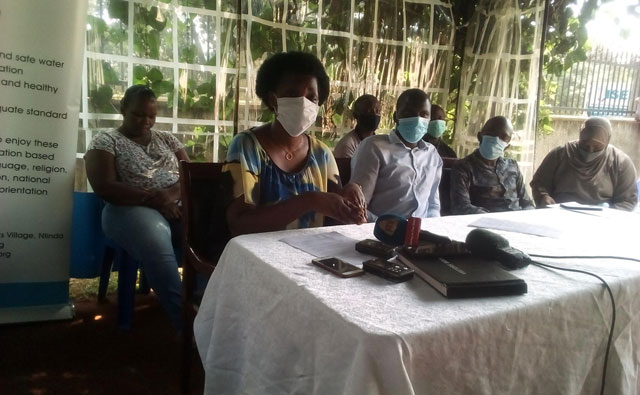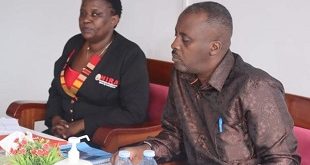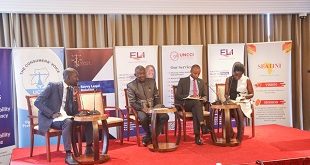
Kampala, Uganda | THE INDEPENDENT | The Initiative for Social and Economic Rights-ISER and Uganda Consortium on Corporate Accountability-UCCA have tasked government to come up with a complete plan of reopening schools for all learners to ease public anxiety.
The CSOs note that there is uncertainty on the continuity of studies for non-candidate classes especially when it comes to vulnerable children living in poor and rural areas. They note that clear communication from the government regarding the resumption of studies will ease the tension and anxiety among children and parents and allow them to plan for their return to school.
Salima Namusobya, the Executive Director Initiative for Social and Economic Rights, says the prolonged closure of schools without an open and transparent plan shared by the government leaves the population in a dilemma about the future of the learners. She adds that as the government tries to find a working solution, it should not leave other stakeholders uninformed, saying that the outcomes might be hard to mitigate.
Citing a study conducted by her organisation across the country last year on the impact of COVID 19 to the continuity of education for vulnerable children, Namusobya says they discovered high cases of child abuse and exploitation including sexual violence, teenage pregnancies and child marriages among others.
She explains that although the government has tried to put in place several interventions to ensure that learners do not lose out on education completely, this hasn’t reached many of the intended beneficiaries. Last year, the government distributed self-study materials and also supported the broadcast of lessons on Television and radios.
The Education Ministry also uploaded self-study materials on its website and that of the National Curriculum Development Center to ease access for learners.
“It is worrying to note that as children who enrolled in public and government-aided schools especially those implementing the UPE and USE programs wait on the government’s next action about their learning, their counterparts in international schools are attending physical classes while those from high end traditional and private schools are attending online classes,” Namusobya said.
She says this worsens the pre-existing inequality to education access on top of loss of interest in the continued learning among learners.
Musa Mugoya, the Programs Director Initiative for Social and Economic Rights in charge of Education, says the government still has a number of questions to answer concerning the continuity of education in the country.
“When will schools be opening for all children? Will the authorities announce learning remotely again? What happened to the initial plans for remote learning that among others involved the distribution of radios and self –learning materials to all children? These are some of the questions, which government is yet to provide answers,” says Mugoya.
The same concerns were raised by several legislators including Joseph Ssewungu, the Kalungu East MP, Jackson Ssenyonga, Mukono South and Geoffrey Macho, Busia municipality. They also tasked the government to come out clearly on the reopening of schools for non-candidates.
In his response, the Prime Minister, Ruhakana Rugunda noted that government is still discussing and monitoring the situation, saying the Education ministry will soon guide on the way forward. President, Yoweri Museveni directed the closure of all educational institutions on March 18th, 2020 to contain the spread of COVID 19 spread. This affected more than 15 million learners, 548192 and 188,000 teaching and non-teaching staff respectively.
********
URN
 The Independent Uganda: You get the Truth we Pay the Price
The Independent Uganda: You get the Truth we Pay the Price


